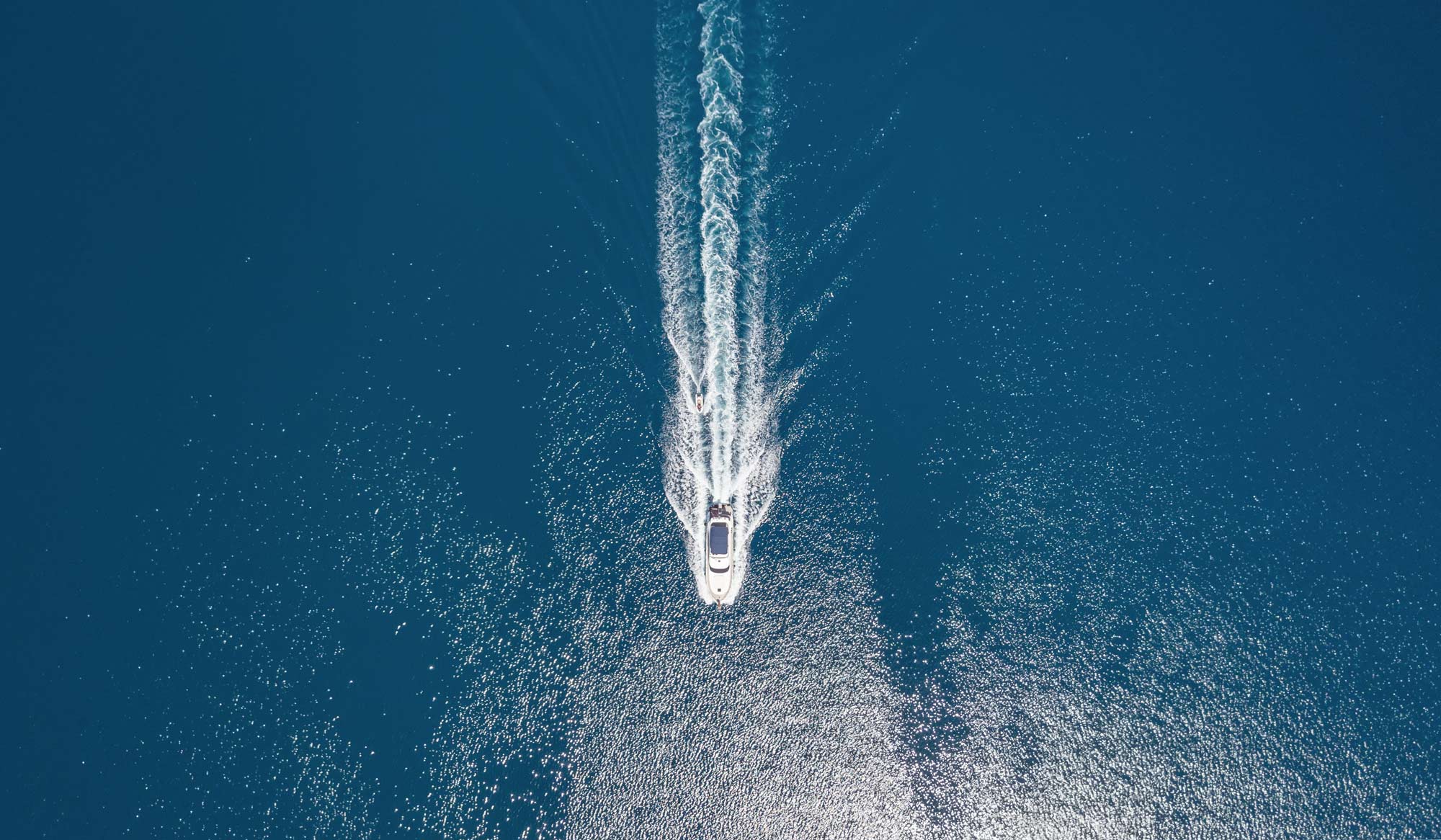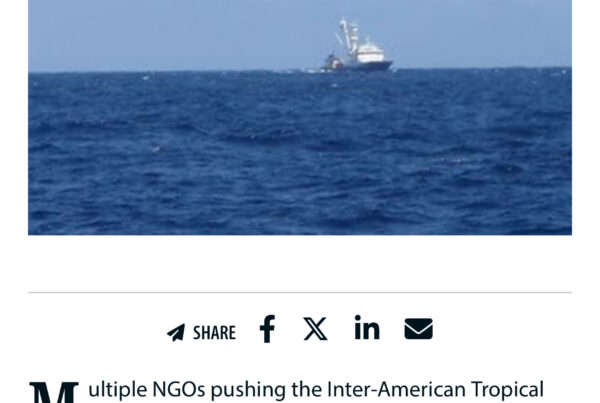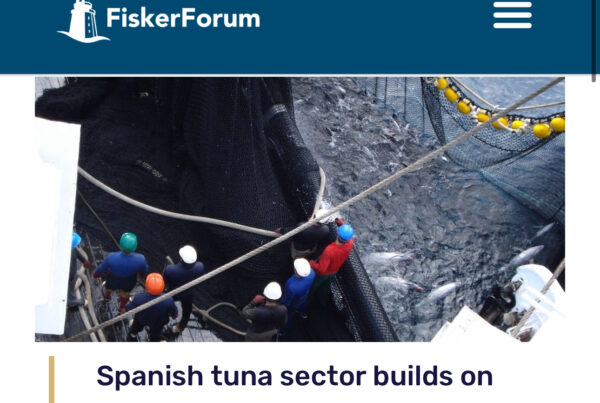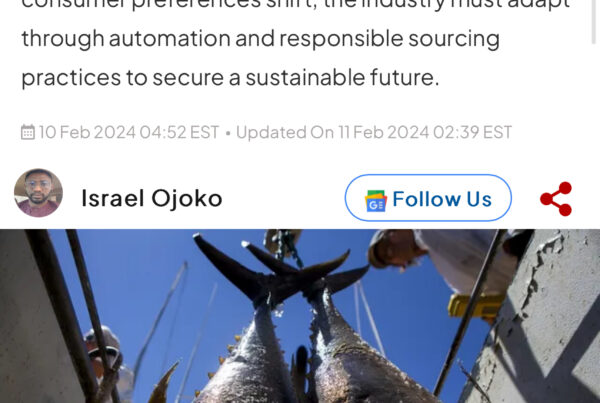‘The Most Important Talk No One Has Heard Of:’ Why the High Seas Treaty Matters
Almost two-thirds of the world’s ocean lies outside national boundaries. These are the “high seas”, where fragmented and loosely enforced rules have meant a vast portion of the planet, hundreds of miles from land, is often essentially lawless.
Because of this, the high seas are more susceptible than coastal seas to exploitation. Currently, all countries can navigate, fish (or overfish) and carry out scientific research on the high seas practically at will. Only 1.2% of it is protected, and the increasing reach of fishing and shipping vessels, the threat of deep-sea mining, and new activities, such as “bioprospecting” of marine species, mean they are being threatened like never before.
Yet, not only does a healthy ocean provide half of the oxygen we breathe, it represents 95% of the planet’s biosphere, soaks up carbon dioxide and is Earth’s largest carbon sink. Continue reading here (Source: The Guardian).
Thai Union Launches “Fish-Free Tuna”
Thai Union’s John West canned fish brand has launched a plant-based tuna analog. The new product is available for retail in the Netherlands. The company said it created the product to meet the increasing demand for plant-based seafood and fish-free alternatives in the Netherlands and globally.
“The introduction of fish-free options alongside our traditional tuna products gives consumers more choice and provides an alternative, relevant source of protein. There is a huge opportunity to connect with consumers of all ages who pursue a flexitarian lifestyle,” John West Holland Country Manager Arno Snoey said in a press release. Continue reading here (Source: SeafoodSource).
Discussions Start on Development of Seychelles Tuna Fishery Management Plan
With the aim of gathering data for the preparation and drafting of the Seychelles Tuna Fishery Management Plan, key actors in the industry are meeting in a two-day consultative workshop to lay the foundation for how to manage the tuna fishery.
Commencing on Thursday, the aim of the workshop is to have everyone involved identify and prioritise issues in the Seychelles tuna fisheries. They are also tasked with defining the scope, vision, purpose, and objectives of the plan, as well as identifying and prioritising options for new conservation and management measures.
At the meeting, the fisheries minister, Jean Francois Ferrari, said the management plan will “promote the effective and holistic development, management, conservation, and equitable use of tuna resources in Seychelles in line with the Fisheries Policy and Strategy 2019.” Continue reading here(Source: Seychelles News Agency).
Fishing Industry Transparency Is Key for a Thriving Ocean
Illegal, unreported and unregulated fishing (IUU), human rights abuses at sea and the collapse of ocean ecosystems are fundamentally intertwined. Fish populations have rapidly declined globally, with 35% of fish populations now overfished and 57% fished at the maximum sustainable level. More vessels are chasing fewer fish, and up to one in five fish are believed to be caught illegally.
To remain profitable, unscrupulous operators turn to illegal fishing, human trafficking, slavery and other abuses to cut costs. This is facilitated by the complex, opaque nature of global fisheries. There is one essential step every government can and must take to end this and bring fisheries out of the shadows: introducing comprehensive transparency. Continue reading here(Source: Mongabay).
Environmentalists, Tuna Fisheries Clash Over Indian Ocean Temporary Ban on Driftnets
An ongoing row between the European Union and coastal Indian Ocean nations over sustainable tuna fishing continues to simmer after a resolution in early February temporarily banned the use of destructive driftnets despite opposition from the European bloc.
Civil society organizations sent a petition Wednesday to the EU’s oceans and environment commissioner, Virginijus Sinkevičius, accusing fisheries lobbies of exerting undue pressure on Brussels to object to the ban which applies to fisheries devices used by some corporations in the bloc.
The much-criticized driftnets are “at the heart of the European fleets” in the Indian Ocean, said Claire Nouvian who heads the scientific non-governmental organization Bloom and is one of the signatories of the petition. Continue reading here (Source: Fox News).
Ghana Mandates EMS Use Onboard All Commercial Fishing Vessels
On 2 March, Ghana announced its commitment to achieving 100 percent transparency across its commercial fisheries by 2025.
The announcement came less than a year after the European Commission issued a second yellow card to the West African nation, a warning that could result in the banning of its products from the European marketplace.
Ghana will install video cameras, remote sensors, global positioning systems, and electronic monitoring system hard drives on fishing boats to ensure activities are effectively monitored and valuable data collected. The Nature Conservancy said in a press release that as a result of the changes, fishery managers will be able to better identify what species of fish are caught and their total volumes. Continue reading here (Source: SeafoodSource).
Fiji to Host Tuna Meeting
About 200 guests are expected to partake in a Fiji tuna symposium next month.
The symposium, the first to be held in Fiji, is being organised with an overall aim to strengthen and streamline ongoing dialogue around sustainable livelihoods, employment, social responsibility, and value creation in Fiji’s domestic tuna sector.
And the organising committee for the symposium is led by Conservation International Fiji in collaboration with the Ministry of Fisheries and a consortium of partners namely Fiji Fisheries Industry Association (FFIA) and the World Wildlife Fund for Nature (WWF). Continue reading here (Source: The Fiji Times).



